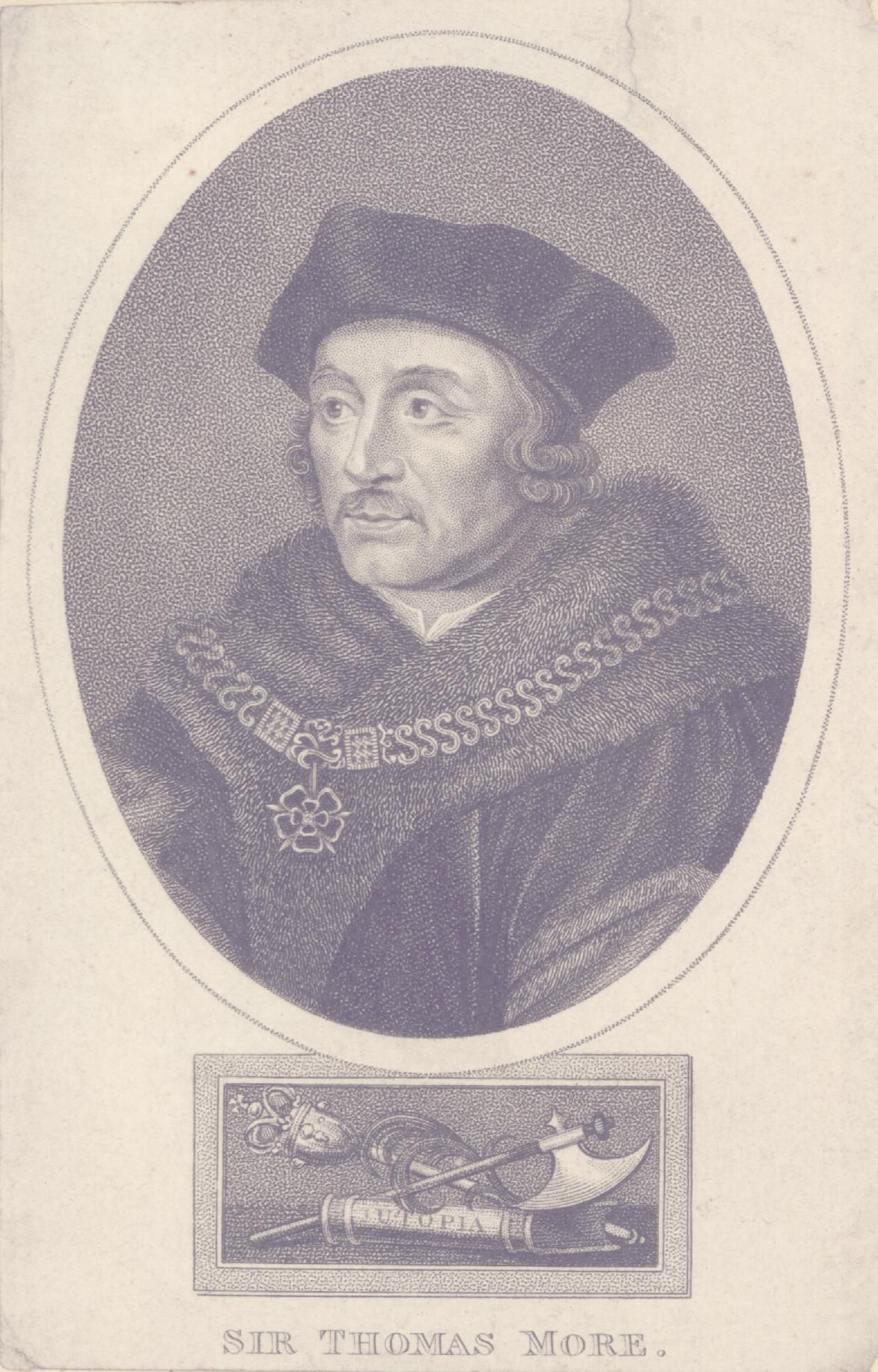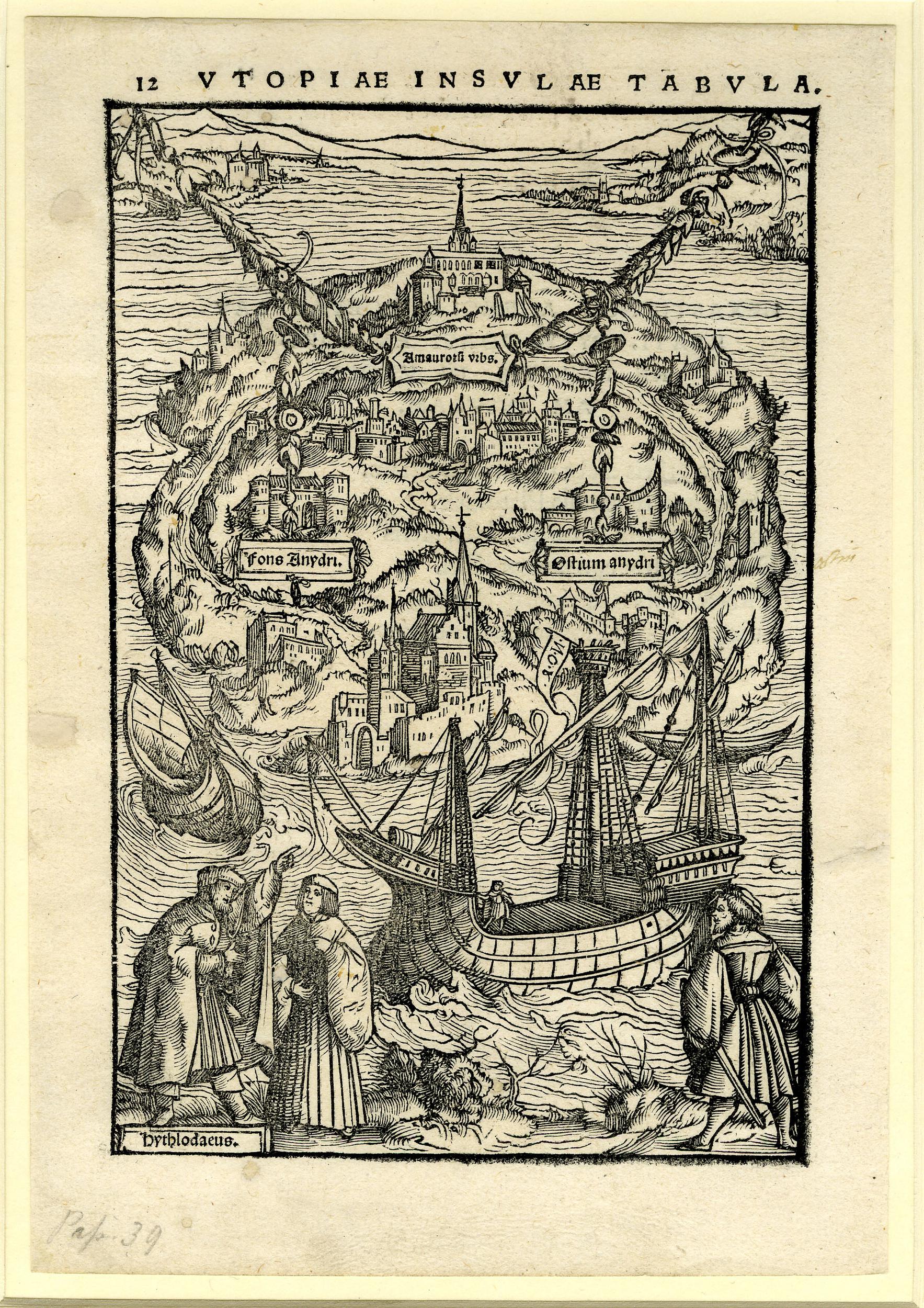Saint Thomas More
An early vision of socialist utopia.

Thomas More was born in 1477, the year after the first printed book was produced in England. He was a prolific writer: in one four-year span, he published over a million words defending the Catholic Church against the Reformation. (The Bible, for comparison, is around 780,000 words.)
More’s most influential, and misunderstood, book is Utopia, in which he describes an imaginary socialist society as if was real. On the island of Utopia, there is no war, no private property. There are no pubs to get a drink, because who needs one. There is universal healthcare, legal divorce, priests that are women, and peace among all religions sects, including those that worship the sun, moon, and famous people. The island’s head-like shape reflects its great rationalism, or so it seems.

In real life, More wasn’t so optimistic. “Utopia,” of course, means “no place.” When King Henry VIII divorced his wife and started a new church, More affirmed papal supremacy until his head was chopped off.